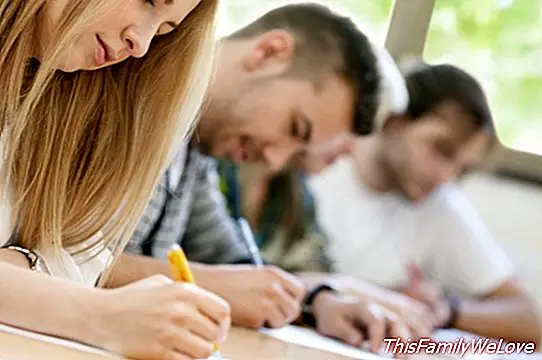The uncertainty of the Revalidation: 10 data that we do know

Thousands of students and professors are demonstrating against the Baccalaureate Revalidation, that as established by the LOMCE, will replace the Selectivity. All students born in 1999 will have to pass this test for the first time in history, if the Government goes ahead with its implementation. For this course, it is considered a pilot experience and will be fully implemented as of 2018. These are the data we know.
The Revalidation of uncertainty
The decree that regulates the revalidation of fourth of the ESO for students of 14 and 15 years and second of Baccalaureate for those who are between 17 and 18 years old, was published in July and left a margin until November 30 to detail criteria. During this course, these new revalidations will be pilot exams without academic value and will not be used to obtain the title. But the Bachillerato Revalidation replaces the Selectividad and is decisive to enter the University, hence its importance.
Although the new course is already underway, these revalidations are still involved in a great uncertainty because in the absence of third elections, there are still parties that threaten to suppress them if the sign of the Government changes. In addition, a group of 9 public universities, known as G9, has agreed on an intermediate way of examining to guarantee a certain "tranquility" to the students.
They are the universities of Cantabria, Castilla-La Mancha, Extremadura, Baleares, La Rioja, Navarra, Oviedo (Asturias), Basque Country and Zaragoza (representing Aragon). Between all they receive about 200,000 university students, something more than 15% of the total.
10 facts we know about the new Revalida
There are many parents who ask the teachers of the schools about the details and details of the new Revalidation for the students who have started the 2nd year of Bachillerato. The chaos in the meetings of schools and institutes for the lack of information is total, so we have collected all the data that are currently available:
1. What is the Revalidation for?
It has a double objective: on the one hand, it provides a cut-off grade for access to the university and, on the other hand, it will allow obtaining the Baccalaureate degree. During the next academic year 2016-2017, this aspect will not be taken into account, but from the following years.
2. How will the test be?
The exam will maintain a structure similar to that of Selectividad, without questions type test and each Autonomous Community will be responsible for preparing the questions, although as up to now the tests will be homologated for the entire territory.
3. How many subjects must be examined?
The compulsory subjects to be examined can be up to 8: the 4 or 5 general core subjects (language, philosophy, history, foreign language and co-official language where it exists); 2 core subjects of modality and a specific subject, these are the student's choice. Some of these subjects may belong to the first year of Bachillerato.
History of Philosophy, for example, is a secondary subject of Baccalaureate that ceases to be mandatory with the LOMCE and that 10 communities have decided to rescue in the part they set of the curriculum.
4. How will you rate the Revalidation?
Although the method of qualifying the test itself is still not well defined, the grades obtained during the Baccalaureate will count for 60% of the total, and its weighting for the final grade will be 40%.
5. Will it be possible to upload a note?
A maximum rating of 14 points is established. This qualification is what will be taken into account for access to university careers. With the current model, in principle, you can upload the grade with any subject and the universities will be able to establish criteria based on the career that the student wishes to take.
The final test that each community decides to do will represent 40% of the admission grade in the nine campuses.
The nine public universities of the known G9 have already decided that the score will remain 14 and that they will equal the weighting table. This table indicates, for example, what final percentage represents Mathematics for the student who wants to study Medicine The agreement also provides formulas to correct the differences of curriculum by communities.
6. Who prepares the exam?
The communities write the evidence, but the general framework is established by the State.
7. Who corrects the Revalidation and how does it score?
Teaching staff external to the center. The regulations do not specify whether secondary school or university. Nor does it indicate how it is scored.
8. How many questions are there in each test?
15 questions per subject. At least half are open questions. The rest, type test.
9. How many annual calls does the Revalidation have?
There will be two annual calls, ordinary and extraordinary.
10What is the necessary note to approve and how much does it count in the final file?
This course, if you take a 4 and the average with the file gives 5, is considered approved. The review of Reválida is worth 40% and the other 60% assesses the academic record.
Marisol Nuevo Espín
It may interest you:
- Selectivity or Revalidation: what changes are expected?
- 5 keys to choose subjects for Baccalaureate
- 7 keys to choose career and professional future
- How to overcome anxiety in exams




